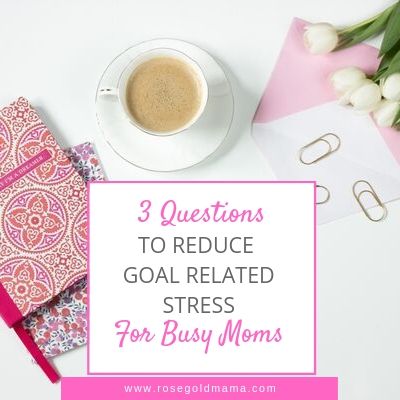
Ever feel like you’re going in circles or dead on the path to achieving your goals? Setting goals can be tough. It can be hard to know if you have chosen something that you can accomplish. Sometimes goals can leave you deflated after having tried and tried to achieve your goal and not making much progress. Or, they can cause anxiety, not knowing how you’ll get the goal done. A lot of this stress and anxiety isn’t caused by the goal but by how you wrote your goal. If you write your goal correctly it will help to set the path for you to actually achieve it and stay motivated the whole time.
To help, you can download the goal writing worksheet at the end of this article.
No matter which goal writing system you use. There are three questions that you should ask about each one of your goals to know whether or not you wrote it right. These questions will help you to understand whether or not you’ve written your goal in a way that it will inspire and motivate you to achieve it. It will also help to ensure that you don’t get to what you believe to be the end of your goal and wonder whether or not you have actually succeeded.
Can You Measure The Outcome?
In order to stay on track you need to know exactly where you are going. For a goal, that means having a measurable outcome. Let’s take the age-old goal of weight loss. Simply stating you want to lose weight is not enough. Instead, you need to state how much weight you want to lose. This is something that can be tracked and measured.
Don’t write: I want to lose weight
Instead write: I want to lose 10lbs.
Does This Goal Show My Motivation?
It’s important that when you write your goals, they include your motivation. Another way to say this is, make sure the “why” for your goal is written in. Sticking with weight loss, say you want to lose 10 lbs. Why do you want to lose those 10 lbs? Say, it’s because you want to move around more easily and be more active in your kids’ lives. Write that into the goal.
Don’t just write: I want to lose 10lbs.
Instead write: I want to lose 10lbs so I can be more active with my kids
See how the second statement has more feeling? When you read this goal, on your weight loss journey it will remind you why you signed up for it in the first place. That helps to keep you motivated.
Does Your Goal Have a Deadline?
Goals need deadlines to be effective. Be sure that each of your goals have a deadline. These deadlines will allow you to stay on track and provide the urgency you need to complete your goal. Sticking with the weight loss example.
Don’t write: I want to lose 10 lbs so I can be more active with my kids
Instead write: I want to lose 10 lbs in the next 3 months so I can be more active with my kids.
A few examples of well and poorly written goals:
Example 1
Don’t write: I want pay off my debt.
Instead write: I want to pay off my credit card debt in the next 9 months so I buy the kids exactly what they want for christmas.
Example 2
Don’t write: I want to clean out my closet
Instead write: I want to remove the clothes I don’t need from my closet by next weekend so that I can have space for fabulous new things.
Example 3
Don’t write: I want to learn a new language
Instead write: I want to learn level 1 Spanish by the end this season so that I can impress myself and get around more easily on our vacation to Mexico
Whatever your goal, be sure you have a measurable outcome, a deadline and the reason why you want this written in. You deserve great things and writing your goal this way will help. Download the goal writing worksheet below to help you write your goals with feeling and urgency.
If you are feeling stuck starting a goal, the two-minute rule can help, get the info here.
Don’t forget to sign up for the Rose Gold Mine, my free resource library. You’ll get free printable worksheets, workbooks, and checklists to help with goal setting, time management and self-care for busy moms.



Leave a Reply